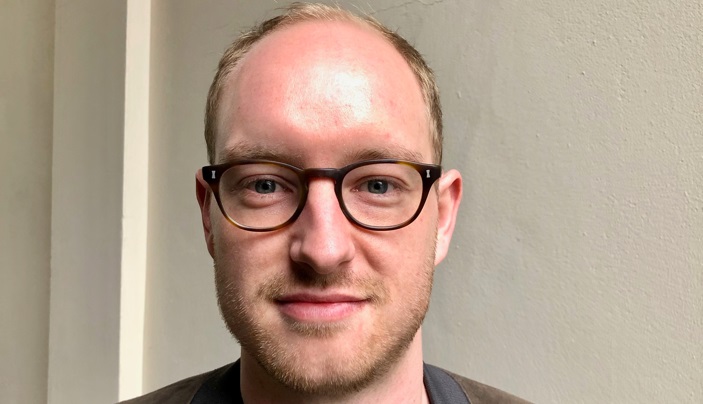Have you ever wondered how much easier travel has become, thanks to the digital innovations shaping our world? Exploring new destinations used to mean…
We’ve netted $150k from VC fund, reveals SA-born founder behind SpeechKit

An SA-born man is behind a US registered startup that has landed $150 000 from US venture capital (VC) fund, Newark Venture Partners. The fund includes audiobooks retailer Audible as one of its investors.
Patrick O’Flaherty, who was born and raised in Johannesburg before moving to the UK when he was 12, is the CEO of SpeechKit.
The startup — which he started with British co-founder James MacLeod in 2017 — offers an automated text-to-audio toolkit that creates realistic, human-sounding audio files from text without the need for expensive voice artists. The two met through a mutual friend in the UK and now both live in London.
SpeechKit netted the $150 000 investment after being selected as one of seven startups to take part in Newark Venture Partners’ latest cohort. The selection was announced last month by New Jersey tech blog ROI in an article.
Patrick O’Flaherty, who was born and raised in Johannesburg, helped found SpeechKit in 2017
But who is SpeechKit?
Any South African who frequents The Daily Maverick or Business Day and Financial Mail’s BusinessLive platform, might be familiar with a play button at the top of each article, which allows users to listen to the entire article. This service is made possible by SpeechKit.
Speaking to Ventureburn yesterday from Johannesburg, where he is visiting family and meeting with clients, O’Flaherty said the company is now registered in the US, with a subsidiary based in the UK, where the two founders continue to operate from (flying to the US every six weeks or so to meet clients).
He said the $150 000 was invested as a convertible note on a $4-million valuation cap.
The startup has eight staff currently and O’Flaherty claims he and MacLeod have signed up 117 news publishers worldwide so far.
The startup generates revenue by charging news organisations for each article that is translated from text to speech, at a cost of about just under $1 for each article.
The service, he says, is available in 30 languages with 250 synthetic voices (the number of voices exceeds that of the number of languages, to cater for differences in regional dialects, accents and for both male and female voices, he says).
SA one of startup’s top markets
The startup’s audio files have so far generated five million impressions, he says. The age group accounting for most of these impressions are those between 18 and 34 years old.
He says a recent analysis of one million impressions, revealed that the audio option has resulted in doubling user engagement with articles (it’s unclear if this has resulted in more traffic to those news media sites using it, or not).
O’Flaherty said South Africa, along with Scandinavia, is proving to be one of the startup’s top markets. “The reception here has been good,” he adds.
He puts the startup’s good traction among media clients in South Africa, down to South Africans being open to trying new technologies. This, while the media in Scandinavia is well funded, making news media more open to spending on services such as his.
The service hasn’t been as popular yet as he’d like, in the UK and US. He puts this down to publishers being under significant cost pressures.
The startup uses synthetic voices and natural language processing which plugs into Microsoft, AWS and Google’s various platforms to help pronounce words and foreign names properly.
The startup doesn’t always get this right however.
Speech impediments
O’Flaherty admits that there are still challenges when it comes to pronunciation — and likely will always be.
For example, the startup’s synthetic voice program can’t yet pronounce the three different clicks in the Xhosa language. He says his team is however trying to fix this.
But he admits that in the end a kind of hybrid approach is the way to go — where the news media publisher pay a little more to have evergreen content read by human voice, rather than the less reliable synthetic one.
It doesn’t pay, he reckons, to have time-bound stories read in a human voice. This, might be too costly for media publishers, he says.
He says he and MacLeod have also learnt from MacLeod’s two other attempts at related audio-type services, both of which failed to take off.
Clippet news allowed listeners to listen to audio news briefings. This, while his other startup, Dash Audio helped podcast creators track and optimise their content on third-party distribution channels MacLeod’s LinkedIn profile page indicates these were shut in 2015 and 2016, respectively).
O’Flaherty however remains optimistic that SpeechKit will be different because, he reckons, a growing number of users are opting to consume articles by listening to these, rather than reading them.
In this, the startup is counting on the growing number of smartphone users who simply put, are just too lazy to read (if you got this far pat yourself on the back – by O’Flaherty’s account, just five percent of readers finish a news article — Ed).
For some, listening to the audio version of an article allows them to do other tasks at the same time, while for others who engage in the content using their mobile phones, it’s more convenient to listen to an article than trying one on an often very small screen.
Maybe then, it’s time for more media publishers to listen up?
*Correction: We initially mistakenly had James MacLeod’s name as “James McLeod”. This has since been corrected. Also, the startup uses natural language programming, rather than neural linguistic learning, in translating text to speech.
Editor’s note (10 December 2019): SpeechKit CEO Patrick O’Flaherty emailed Ventureburn subsequent to the publication of this article, to comment on what we reported as his co-founder’s two previous startups having failed.
“I wouldn’t go as far as to say that the two previous startups failed, in fact they did quite well, but the market just wasn’t big enough and too few news publishers had podcasts at the time — hence turning existing news articles into audio,” he said.
Featured image: SpeechKit co-founder Patrick O’Flaherty (Supplied)

